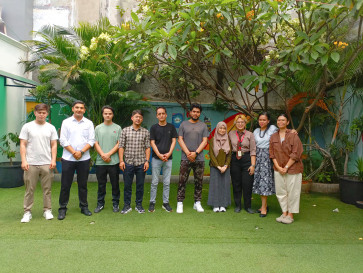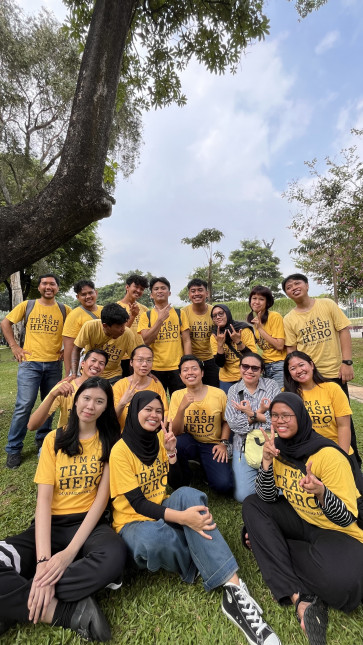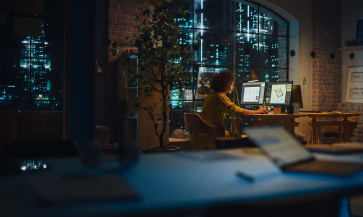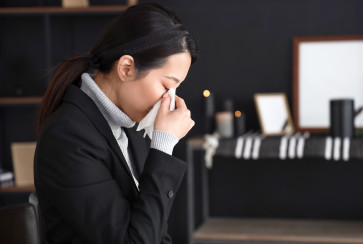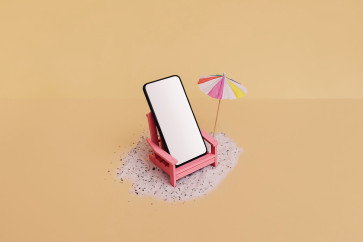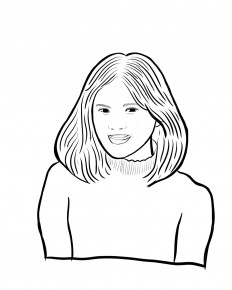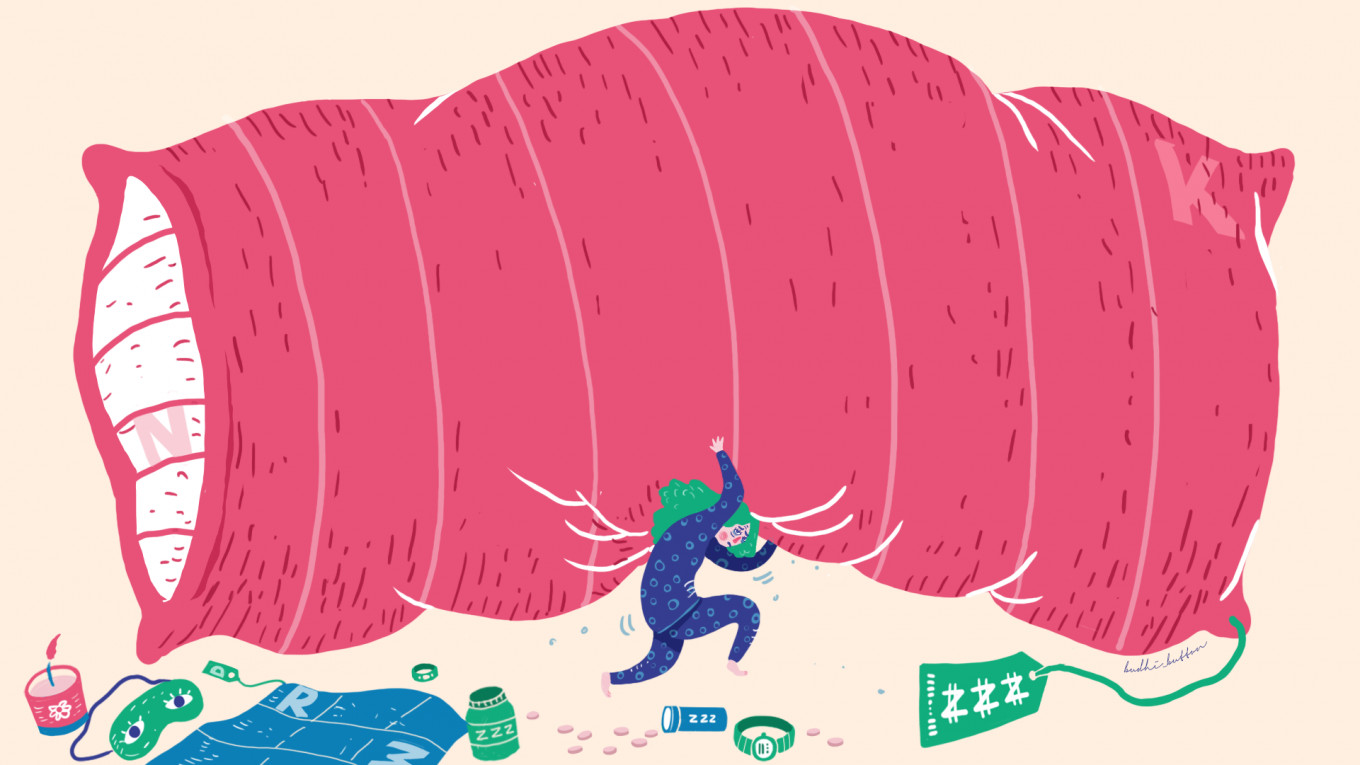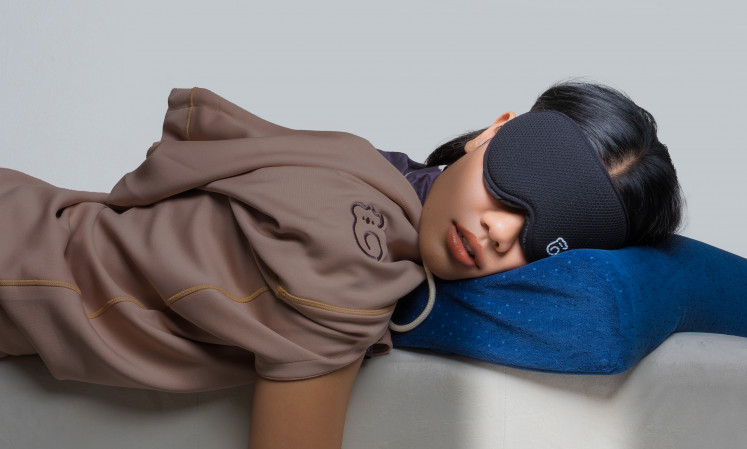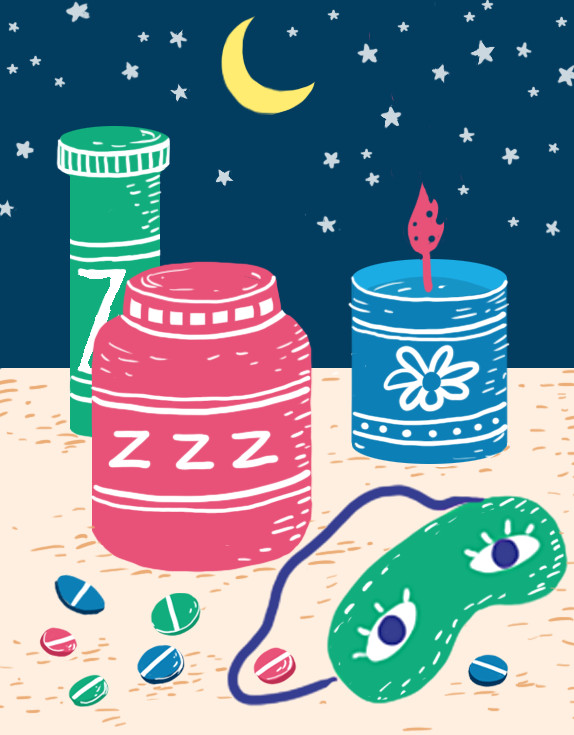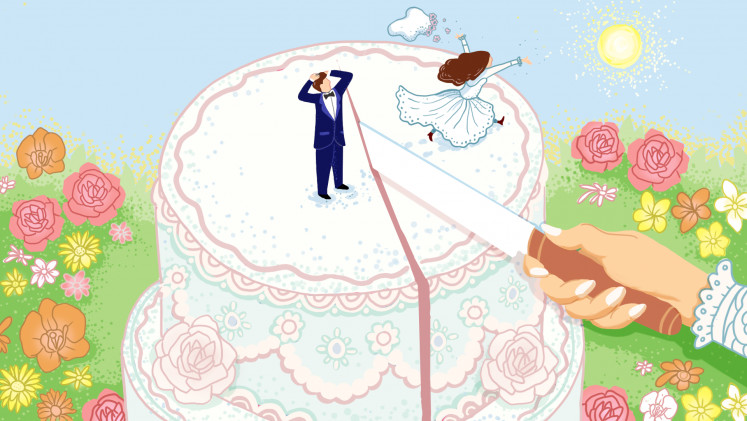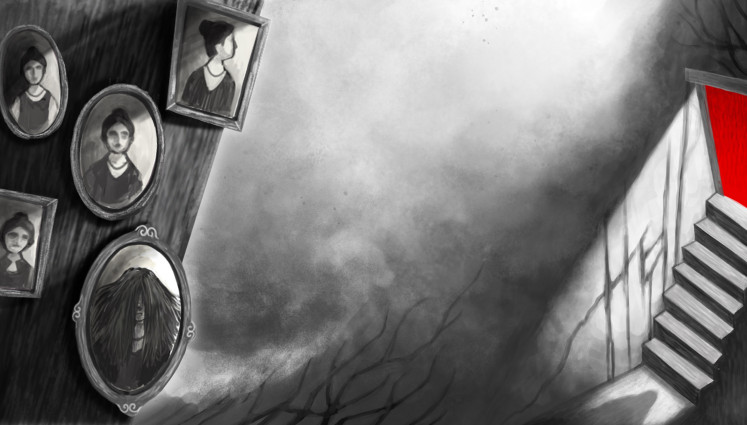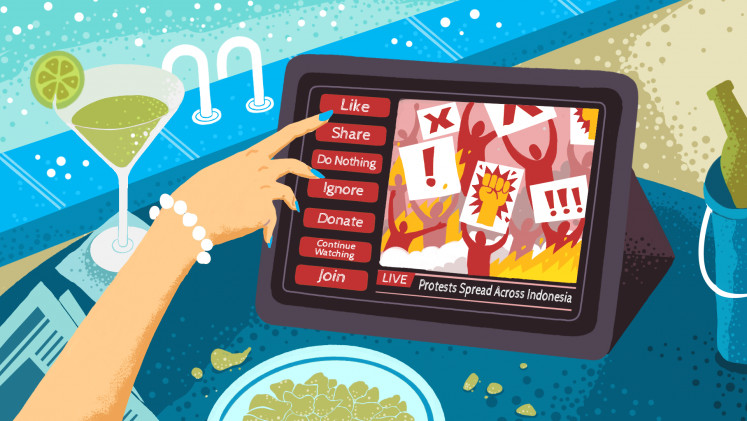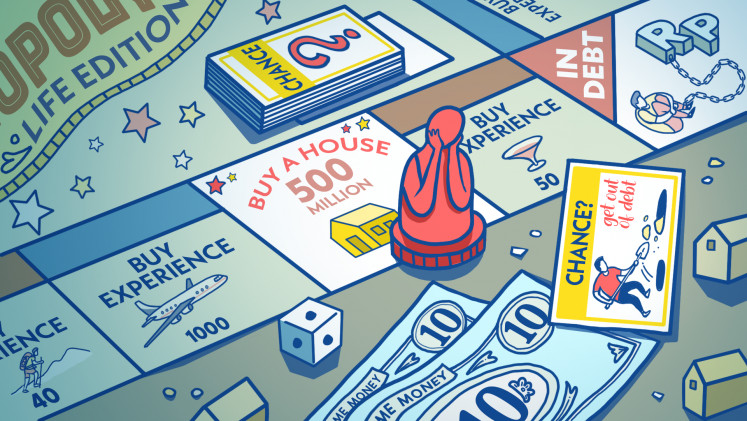For some, sleep comes easily. For others, it takes a whole ritual.
I take my sleep seriously: the room has to be cool, dark and calm and definitely no snoring. Anything less than seven hours and my next day is ruined. And like debt, that loss carries over, often with interest.
It wasn’t always this way. When I was younger, I was notorious for being able to sleep anywhere, from my university canteen to a concert venue while waiting for Bon Jovi to take the stage.
Now, unless I am completely exhausted, I need props: herbal tea, fluffed pillows, blackout curtains.
A good night’s sleep is no longer a given. It has become a luxury.
And like gadgets or beauty fads, I keep chasing new ways to sleep faster, deeper, better. Except unlike the latest phone we may want but do not really need, sleep is a necessity. I have tried Cloudy’s melatonin vape, Rp 800,000 (US$48) Loop earplugs, ashwagandha supplements and sleep patches, an orthopedic mattress I would rather forget the price of, even prescription narcotics such as Zolmia that will knock you out cold.

Thank you!
For signing up to our newsletter.
Please check your email for your newsletter subscription.
And I am not alone. What used to be natural has turned into a lifestyle category.
We now track our sleep with apps, spend small fortunes on pillows and even millions on sleep retreats. One hotel in Ubud offers an “Art of Slumber” package combining healing rituals, spa treatments and curated meals to guide guests into deep rejuvenation, starting at Rp 8.5 million a night.
But if sleep is a basic human need, why does it now feel so hard to get? Why does it take gadgets, rituals and sometimes a hefty budget just to close our eyes?
The need for good sleep
While the hustle culture we grew up with glamorized the ability to function with little sleep, there is now growing awareness of the importance of those hours we spend in slumber.
Sleep is the body’s nightly repair shop: fixing cells, regrowing tissue, strengthening the immune system and flushing out harmful waste from a day of mental labor, according to the Mayo Clinic Guide to Better Sleep.
During those hours, the brain is also busy storing memories in the hippocampus, smoothing emotional edges and fortifying resilience for the next day. Hormones, chemical messengers and electrical impulses all work together in a delicate symphony.
“You need sleep as much as you need food and water,” the book says.
Chronic lack of sleep, especially over years, creates small disruptions in the body that accumulate. Over time, it chips away at everything: energy, mood, focus and physical health.
So, what really defines a “good” night’s sleep?
The answer is not straightforward. Specialists look at several measures: time spent in bed, how long it takes to fall asleep, time awake during the night and total sleep duration and regularity.
In plain terms, good sleep is when you wake up rested, alert and energetic for most of the day.
For many Indonesians, though, that remains rare.
The fixes we try
The capitalist machinery keeping us awake has also been eager to offer solutions.
Kezia, 32, swears by sleep patches. But for Nacita, 33, they don’t work. She turned to magnesium glycinate and, on rougher nights, antihistamines with drowsy side effects.
Florence, 36, sometimes relies on herbal pills or even motion sickness tablets. But with her hours constantly shifting, her real weapon is “sleep revenge”, catching up and paying off the debt the next day.
Ave, 27, once did not sleep for three days after her mother passed.
“The pills worked wonders back then,” she says.
Now she is doing better, moving on to a gentler fix: her dogs, who calm her down and help her drift off, while she still takes melatonin from time to time.
Rinta, 33, tried meditation and exercise to address chronic insomnia. But the game changer was a mobile app called Rise Science.
“It gives reminders on when I should sleep, the best time to wake up, when to stop caffeine, even when to take a nap, all based on my habits and goals,” she explains.
“I followed it religiously. Over time, it became a habit: I go to bed earlier and now I don’t even need an alarm to wake up.”
With so many people in need of solutions, companies are eager to offer options, from aromatherapy to blankets.
. (Courtesy of Kwala)
Kwala, for example, is an Indonesian brand that started in 2021 with a swaddle blanket designed for the tropics, offering a hug-like sensation to calm nerves. It now sells pillows for different sleeping positions, blackout masks and even sleepwear.
“Even though our price point is higher than basic options and we operate in a niche segment, the demand is there and it keeps growing,” Kwala founder Aloysius Marcel says.
“Many of our expansions actually come from customer input.”
The problem isn’t just personal
Why does good sleep feel like a luxury?
For Tika, 35, who worked in an agency where long hours and instant replies were celebrated, rest was never part of the culture.
“Over time, I wondered why I always woke up restless. I was always tired, and yet I already had to get up and work again,” she recalls.
A podcast sparked her search for answers and led to two revelations. Medically, her tracker showed she stopped breathing during the night. It turned out to be a deviated septum, requiring surgery. The harder discovery was psychological.
“I realized I couldn’t relax because I felt guilty whenever I wasn’t productive. Even when I slept, my brain wouldn’t stop. I often woke up, answered emails, then went back to bed.”
That constant state of alert is what clinical psychologist Mifta Sugesty sees as the core of our crisis.
“My analogy is that we’re like laptops: always on standby. We never shut down, just waiting to be switched on, with problems always running in the background,” she says.
“Modern life demands us to have minimum loading time, to stay alert as soon as possible, and this conditions our nerves to resist deep sleep.”
Not too long ago, computers had to be properly shut down. Our bodies and minds are the same.
“Remember when we were kids? We went to bed at 9 p.m., right after the news. Now even children stay awake until late at night,” she says.
“It’s hard to force a regular bedtime, both for ourselves and our kids. There’s always something else to do, and the stimulation never stops. Screens, especially, blur the line between home and the outside world.”
“But the body doesn’t work like that. It needs signals and a cooling-down period before it can rest. Without that transition, sleep becomes shallow, restless and incomplete.”
A simple solution
These days, Tika is making changes: she had the surgery, changed jobs, adjusted her lifestyle and replaced coffee with chamomile tea. The result? Better sleep, and with it, better quality of life.
For the rest still struggling, the first step, Mifta says, is to be mindful and reconnect with the body.
“We’ve gone on autopilot. Our awareness of internal needs has declined. Stress or pain feels scary, so we numb it. But when we numb, we also shut out the call for rest.”
The alternative is to notice those signals again: “I need to rest” or “I should put my phone away”, and to act on them.
“It’s about being aware of what your body asks for, and taking small steps,” she says.
Her suggestion is simple: Treat ourselves the way we treat babies.
“Force your body to sleep. At first it will feel uncomfortable. But over time, your body learns. You’ll train yourself to fall asleep at a regular hour.”
Rest is a social issue
Mifta believes sleep is no longer just an individual struggle; it has become a social issue.
“There must be something wrong in our environment that makes sleep so difficult, even though it’s a basic need,” she says.
“Eating well is a basic need too, and there are government programs to address nutrition. Why not sleep? Tackling this requires social engineering, even policy.”
She points to Europe.
“Most European cities shut down around 9 p.m., so you’re naturally conditioned to rest. I was under academic stress when I lived there, but my health was better because I was getting enough sleep.”
But she admits Indonesia is far from such measures.
“Indonesia has countless bigger problems. I don’t see the government doing anything about sleep soon,” she laughs.
. (JP/Budhi Button)
Sleep is the new luxury, not just because of price tags, but because it now requires effort. Technology, discipline, money and awareness. And even then, there are no guarantees.
As the world keeps shifting, bringing storms into our days and noise into our heads, sleep might be one of the last things we still have to fight for.
Maybe all we can do for now is try: to listen to our bodies, to make conscious efforts to rest and to remember that rest isn’t laziness.
It is survival. It is healing. It is human.
Adelia Anjani Putri, a communications consultant and former reporter, has found herself writing again. She’s also exploring a career shift that would let her pursue her passions for cooking and catsitting—ideally with a paycheck.






